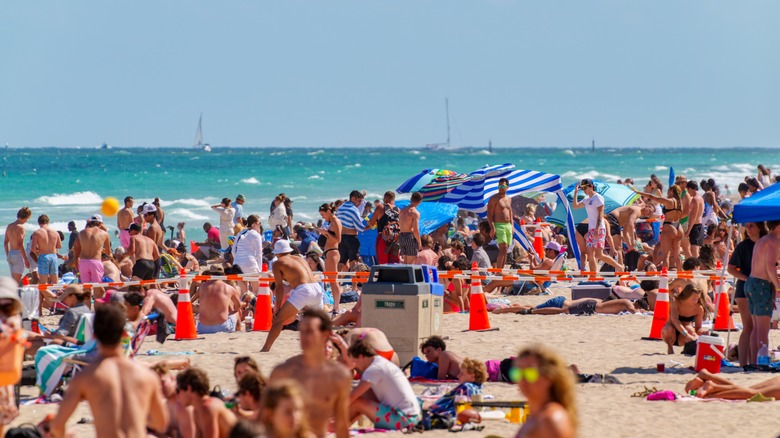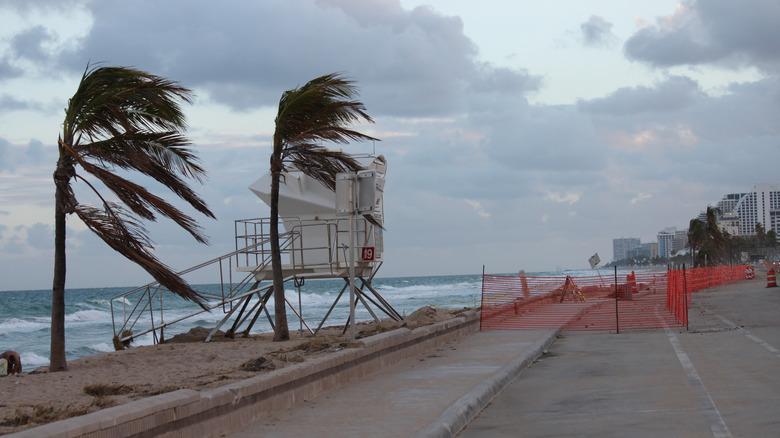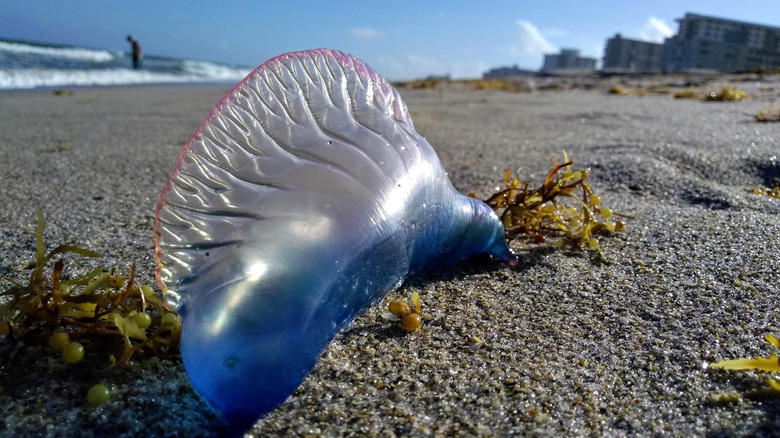The Popular, Bustling City With One Of Florida's Most Dangerous Beaches
The city of Fort Lauderdale is a Spring Break favorite, with people looking to party on the beaches flooding in every year to enjoy the sun, waves, and white sand. Other than the possible risk of alcohol poisoning, this probably doesn't seem like a particularly perilous place to take a trip. However, a 2023 report from Travel Lens ranked Florida's Fort Lauderdale Beach as the 10th most dangerous in the United States because of its history of hurricanes, surf zone fatalities, and shark attacks.
In 2024, it was announced that there would be more police officers all over the beaches to prevent too much Spring Break debauchery, but they probably won't do much to keep you safe from marine life, rip currents, and storms. In order to stay safe while enjoying the sunny beach, the City of Fort Lauderdale recommends only swimming when you're sober, with your friends, and in areas where lifeguards are on duty, and never swimming or floating out farther than where you are 100% certain you can swim back to shore by yourself.
Deadly storms and water conditions at Fort Lauderdale Beach
One of the major reasons that Fort Lauderdale Beach is considered so dangerous is the number of hurricanes that have hit the shores there. This region of Florida has an annual hurricane season between June and November, which sees storms with dangerous winds and torrential rains sweep through. The city of Fort Lauderdale sometimes has to close roads due to flooding concerns, delay flights at the airport, and evacuate the beach after major storms. Updates about dangerous weather conditions around the beach can be found on the City of Fort Lauderdale website. There, you can also find out how likely another terrifying natural phenomenon is — rip currents.
A lot of beaches in Florida are dangerous because of rip currents, and Fort Lauderdale is no exception. Strong winds over the ocean can cause rip currents, powerful currents in the water which can quickly sweep beachgoers out to sea. Even for strong swimmers, these currents can be deadly. Visitors have died because of these difficult-to-predict currents at Fort Lauderdale Beach.
Fort Lauderdale Beach's dangerous sea creatures
Fort Lauderdale Beach doesn't have the resident population of sharks like Cape Cod, which is the Great White Capital, but there have been a few unprovoked attacks at this popular party spot. In 2019, a 12-year-old boy survived an attack, and in 2021, a 7-year-old may also have been bitten by a shark, although local outlets suggest it might have been a barracuda). Regardless, Florida is the riskiest place in the world when it comes to getting bitten by a shark, and there certainly are sharks in the area, including great whites.
While it's not one of the factors that the survey from Travel Lens considered when it ranked Fort Lauderdale beach the 10th deadliest in the world, you should also keep an eye out for jellyfish and men-of-war when you're swimming there. While they are very unlikely to be deadly, jellyfish stings are extremely painful. Though you can't completely avoid jellyfish by following a calendar, as you can in Hawaii, you can keep an eye out for flags at lifeguard stations and statements from local officials indicating jellyfish risk.


